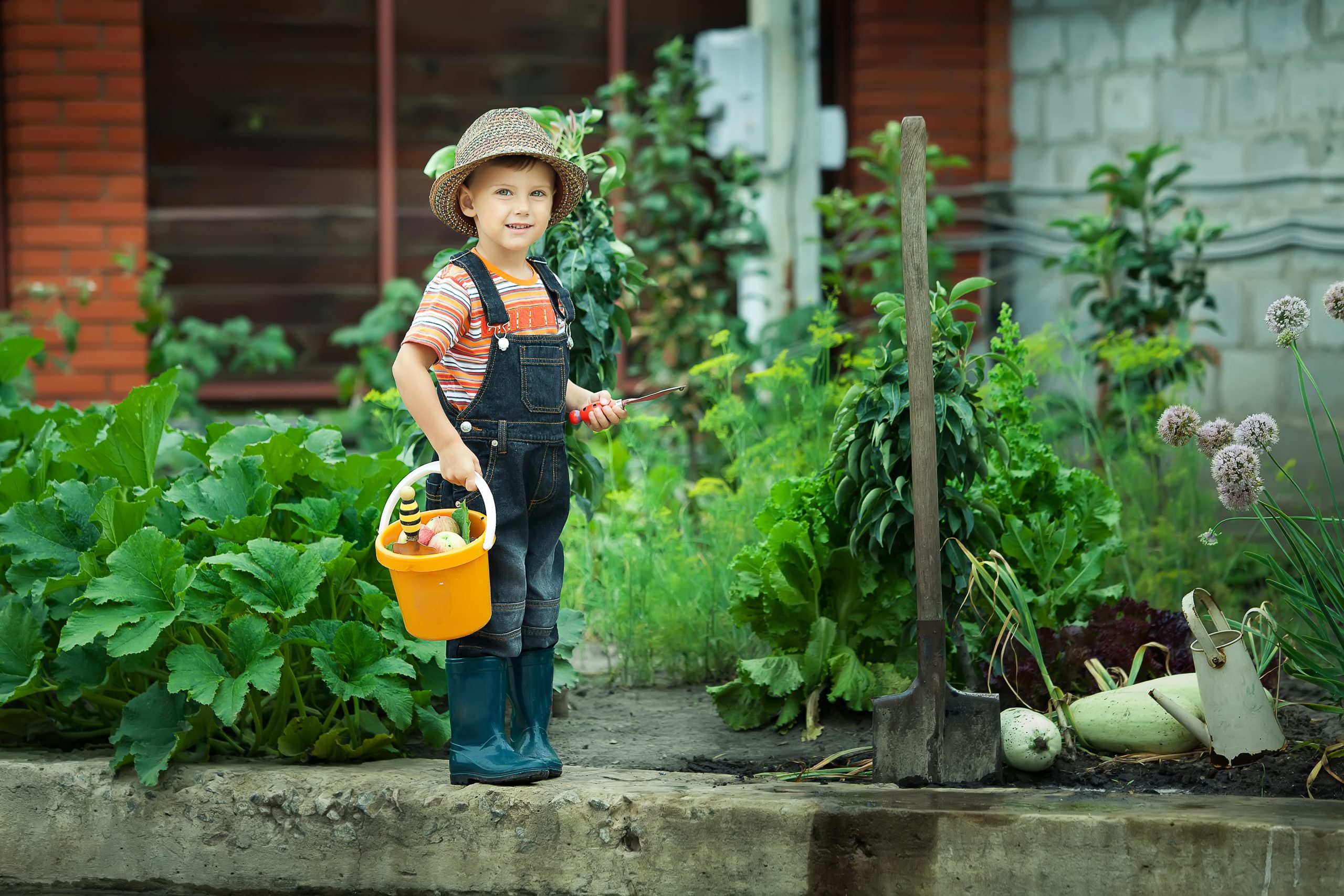Whether it becomes an acre of bountiful harvest or just some cucumbers and tomatoes for your summertime salads, gardens offer you an opportunity to teach your children valuable life skills. We all know about the physical benefits of gardening. There’s the sunshine, fresh air, exercise and healthy eating that it promotes. All of those wonderful experiences and still, gardening offers more.
As parents, we plant the seeds of who our children will become. Now is the time to get down in the dirt with your kids and open them up to the lessons that gardening can teach them.
Planning
Forward thinking is something we sometimes forget to teach our children during the rigorous hustle and bustle of their youth. Planning a garden with your children will teach them valuable skills they need to plan for the future. Right now, you plan for the garden layout and the necessary seed and plant purchases. You spend the time because someday, too soon, your kids will be pouring over college course descriptions the way you teach them to pour over seed catalogs.
Make the planning process fun. Take measurements of your ground space and decide whether you are going to use containers. If you’re in an urban area and green space is hard to come by, containers will be your best friends. Many seed companies have developed hybrids that thrive in small containers and still produce prolifically.
As you plan your garden with your children, remember to let them choose their favorite fruits and vegetables. Having even a single watermelon that they will devour will be a great reward for a job well done and they will be more likely to try new foods they helped to cultivate.
Cooperation
Your children will want to help with the garden. Let them. Getting down into the soil and working with you and their siblings will teach your child cooperation. When our usually stingy five year old started doling out even amounts of ripe tomatoes for everyone during last year’s harvest, we knew that gardening was teaching her lifelong values.
There will be more cooperation and less fighting if you assign each child a section of the garden or a specific task. One can be in charge of diggings small holes, a great job for boys, while another can be in charge of seeds, watering, etc.
Patience
Plants take time to grow. Your family garden will teach your child that good things are worth waiting for. Sure, you can always run to the farmer’s market for a hearty crop of tomatoes, but waiting to make sauce from your own, home grown variety is much more rewarding. When the first seedlings push through the soil and into the sunlight, your kids will begin to see the results of their labor.
Every year when the blueberries start to ripen on the bushes in our side yard, my two middle kids monitor them daily. They have learned that eating a sour purple berry is not as fun as waiting for that same berry to turn a deep, sweet blue. Teaching an appreciation for delayed gratification will pay off in spades when it comes time for your teenager to plan a large purchase.
Diligence and consistency
Just as practicing a musical instrument will become easier for your child over time, so too does gardening. When you first uncover the mucky mess of weeds and soil in the early spring, you will have to put in a great deal of time and effort to prepare the garden for planting. If you leave the garden unattended for too long in the summer, the weeds will begin to take over once again. Like any skill worth learning, when your child learns to pay diligent and consistent attention to your garden, it becomes easy to manage.
Dealing with disappointment
Sometimes things don’t work out. Seeds refuse to germinate. Unwanted pests destroy a tomato plant. Deer and bunnies take their fill of your lettuce. Any number of things can go wrong, particularly if you are gardening for the first time. That’s okay. Share the lessons with your children.
Next year, you’ll put the deer fencing up earlier and find a way to battle garden pests. You will research which plants do well in your area and realize that maybe a lemon tree was never a good idea for your growing zone. Gardening is like life in that way. There are so many big and little successes and failures. You learn lessons along the way and, as the years go by, you gain experience. If you handle the disappointments with grace, your children will learn to do the same.



